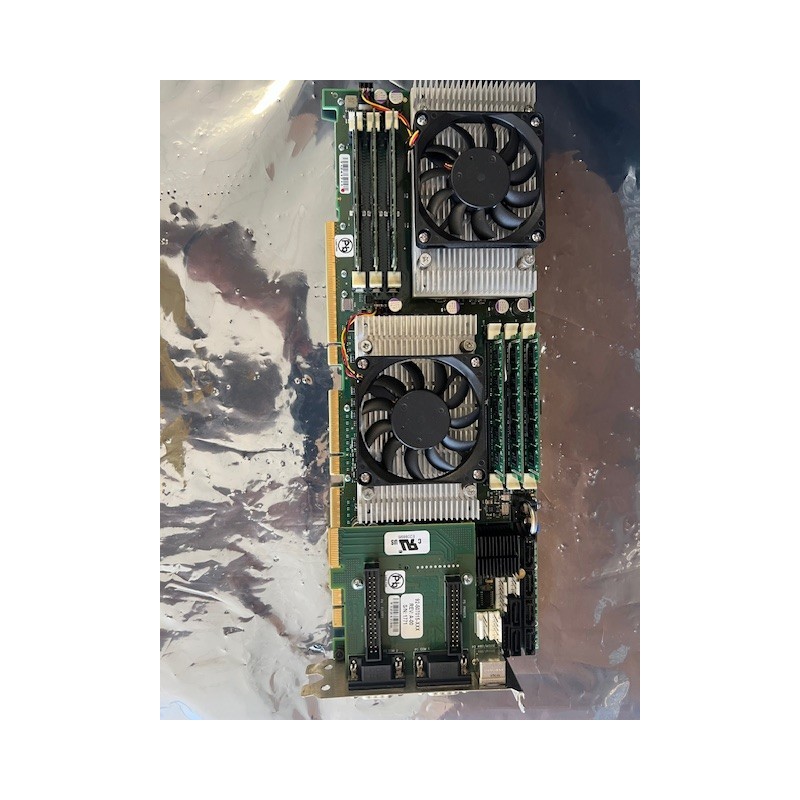





Trenton JXT 6966XXX 92-506966-XXX Full Size PICMG 1.3 System Host Board (SHB)
The JXT6966 and JXTS6966 are combo-class, PICMG® 1.3 system host boards that support the Intel® Xeon® C5500 processors. These CPUs feature the Nehalem micro-architecture and were developed under the codename Jasper Forest. The processors have a DDR3 integrated memory controller that supports three DDR3-1333 memory interface channels per processor resulting in six direct access memory interfaces on the JXT6966 board version. The six interfaces connect to six DDR3 Mini-DIMM sockets. With 4GB DDR3 Mini-DIMMs the total system memory capacity for a JXT6966 is 24GB and will double to 48GB once 8GB DDR3 Mini-DIMMs come on the market. The maximum theoretical system memory capacity for the JXT6966 is 192GB. The system memory capacities are cut in half for the single processor JXTS6966 board version.
PCI Express 2.0/1.1 links are built into the processors and the Intel® Quick Path Interface (Intel® QPI) between processors on the JXT6966 enables CPU resource sharing for an additional system throughput speed boost. All of the PCI Express interface links needed for a PICMG 1.3 compliant backplane are provided by the PCIe links out of CPU1 and the additional link out of the Intel® 3420 Platform Controller Hub (PCH). CPU2 on the JXT6966 provides four additional x4 PCI Express 2.0 or 1.1 links to a backplane via an optional plug-in card called the Trenton PEX10. These extra links provide added bandwidth to systems equipped with a backplane such as the Trenton BPC7009 or BPC7041. An optional IOB33 module provides an extra x1 PCIe 1.1 link to a backplane equipped with a PCIe expansion slot.
Video and I/O features on the JXT boards include:
• A Graphics Processing Unit (GPU) driven with an internal x1 PCIe link and capable of
supporting pixel resolutions up to 1920 x 1200 (WUXGA) with a 64k color depth
• Three Gigabit Ethernet interfaces with two on the I/O plate and one available for use on a
PICMG 1.3 compliant backplane
• Six SATA/300 ports that can support independent drives or RAID drive arrays • Eight USB 2.0 interfaces